On-demand healthcare apps have come a long way in just a few years. In the early days, these apps were primarily used for appointment booking and basic teleconsultations for providing patients with a convenient way to connect with doctors without long wait times. Thereafter, the COVID-19 pandemic accelerated their adoption, which made virtual care a necessity rather than a choice.
Today, these apps have evolved into comprehensive platforms that offer a range of services, including e-prescriptions, remote monitoring, and mental health support. In fact, this digital shift with the help of an experienced healthcare app development company in Denver, USA has made healthcare more seamless and efficient for patients, where accessibility and convenience are highly valued.
As technology continues to advance, the future of healthcare apps will move beyond virtual consults to AI-driven diagnostics and personalized care. This blog will explain how on-demand healthcare apps are changing patient care today and what new developments are coming in the future.
Stage 1: The Beginning – Virtual Consults & Basic Care
The first wave of on-demand healthcare apps focused on solving simple problems, such as booking appointments and connecting with doctors over video. These early features made care more convenient and accessible for patients, particularly during busy schedules or in emergencies.
- Video Consultations
On-demand healthcare apps first gained popularity with video consultations to enable patients to connect with doctors from the comfort of their own homes. Instead of waiting in long lines at clinics, residents can schedule a quick video call for common issues such as colds, allergies, or follow-ups. This convenience improves access to primary care and reduces the need for unnecessary hospital visits.
- Online Appointment Scheduling
Easy appointment scheduling through apps changed how residents access care. Instead of phone calls and long hold times, patients book appointments instantly with just a few taps. This feature ensures real-time availability, reminders, and fewer missed visits. In fact, digital scheduling offers flexibility for busy professionals and families in Denver while enhancing overall healthcare efficiency.
- E-Prescriptions Delivered to Your Pharmacy
E-prescriptions enable doctors to send medications directly to local pharmacies, making treatment faster and more secure. Patients no longer worry about losing paper prescriptions or misreading handwriting. Some apps even partner with pharmacies for doorstep delivery. This feature ensures smoother medication management for Denver communities, especially for elderly patients and those managing chronic health conditions.
Stage 2: The Growth – Integrated & Comprehensive Care
As apps developed by reliable mobile app development company in Denver, USA evolved, residents began to see more comprehensive services. This stage represents the shift from simple telehealth tools to platforms that provide ongoing, coordinated, and patient-centered care at the touch of a button.
- Remote Patient Monitoring with Wearables
Wearable technology connected to healthcare apps is now widely used in Denver. Devices like smartwatches and glucose monitors track heart rate, oxygen levels, and sugar levels in real-time. Doctors can monitor such data remotely for allowing early detection of health risks. This means fewer emergency visits and more proactive management of their healthcare, especially for patients with chronic conditions.
- Chronic Disease & Mental Health Management
On-demand healthcare apps are helping patients manage diabetes, hypertension, and asthma while also supporting mental health needs. These apps offer therapy sessions, mood tracking, and personalized plans. With easy access to both physical and psychological healthcare, patients feel more supported. This approach reduces stigma, improves daily management, and ensures a better quality of life for many residents.
- Insurance & Payment Integration
The integration of insurance within apps has made healthcare more accessible for residents. Patients can check coverage, estimate costs, and process payments without paperwork. This transparency reduces billing confusion and improves trust. In fact, integrated insurance support ensures smooth claims and affordable access to care for families and individuals in Denver, making on-demand healthcare apps an essential part of the medical experience.
Stage 3: The Future – AI, Automation & Beyond
The next stage of healthcare apps is about intelligence and personalization. This future stage promises proactive, data-driven, and highly personalized healthcare that adapts to each patient’s unique needs while improving access across the Denver city.
- AI-Powered Symptom Triage & Diagnostics
The future healthcare apps will use AI to analyze symptoms and guide patients to the right care faster. Instead of guessing, patients can describe their symptoms, and AI-powered tools will suggest possible conditions and connect them to specialists. This feature helps reduce unnecessary ER visits, speeds up care, and empowers patients to make informed decisions.
- AR/VR-Enhanced Care & Home Teletherapy
AR and VR technologies are expected to transform telehealth in Denver. Using such technologies, patients can use VR headsets for physical therapy at home or AR tools for guided self-exams. In fact, doctors can conduct more accurate remote evaluations, whereas patients experience immersive therapy sessions. This innovation makes specialized care more accessible and engaging, thereby reducing the need for in-person visits.
- Genomics-Based Personalized Treatment Plans
The future of on-demand healthcare includes treatments based on genetics. In fact, an on-demand healthcare app development company in Denver, USA can help to integrate genomic testing to identify risks like cancer or heart disease and suggest lifestyle changes or medications tailored to each person’s DNA. This personalized approach ensures treatments work more effectively and reduces trial-and-error in care for making precision medicine available through simple digital platforms.
Conclusion
The journey of on-demand healthcare apps shows how far digital health has come in transforming patient care. On-demand healthcare apps began with basic video visits and appointment booking, and have now expanded to include e-prescriptions, remote monitoring, mental health care, AI-powered diagnostics, and personalized treatment options.
This means healthcare is no longer limited to clinic hours or hospital visits for Denver residents. Instead, it is available anytime, anywhere through a smartphone. These apps make care faster, easier, and more accurate while giving patients better access and doctors better tools. They also improve treatment outcomes, reduce unnecessary costs, and bring more convenience to daily healthcare.
Therefore, on-demand healthcare apps open new opportunities to serve patients more effectively and grow in a competitive market. With ZimbleCode as your experienced on-demand healthcare app developers, you can build advanced healthcare apps that meet today’s needs and lead the future of healthcare in Denver.
Frequently Asked Questions (FAQs)
Q1. Are on-demand healthcare apps safe for patient data?
Most apps follow HIPAA guidelines and use encryption to protect patient information.
Q2. What factors affect healthcare app development cost in Denver?
The cost depends on features, security needs, integrations, and design complexity.
Q3. Can I book specialists, not just general doctors?
Many on-demand healthcare apps let you connect with specialists in various fields.
Q4. Can I use on-demand healthcare apps without the internet?
You need the internet, but some features work offline, like reminders.

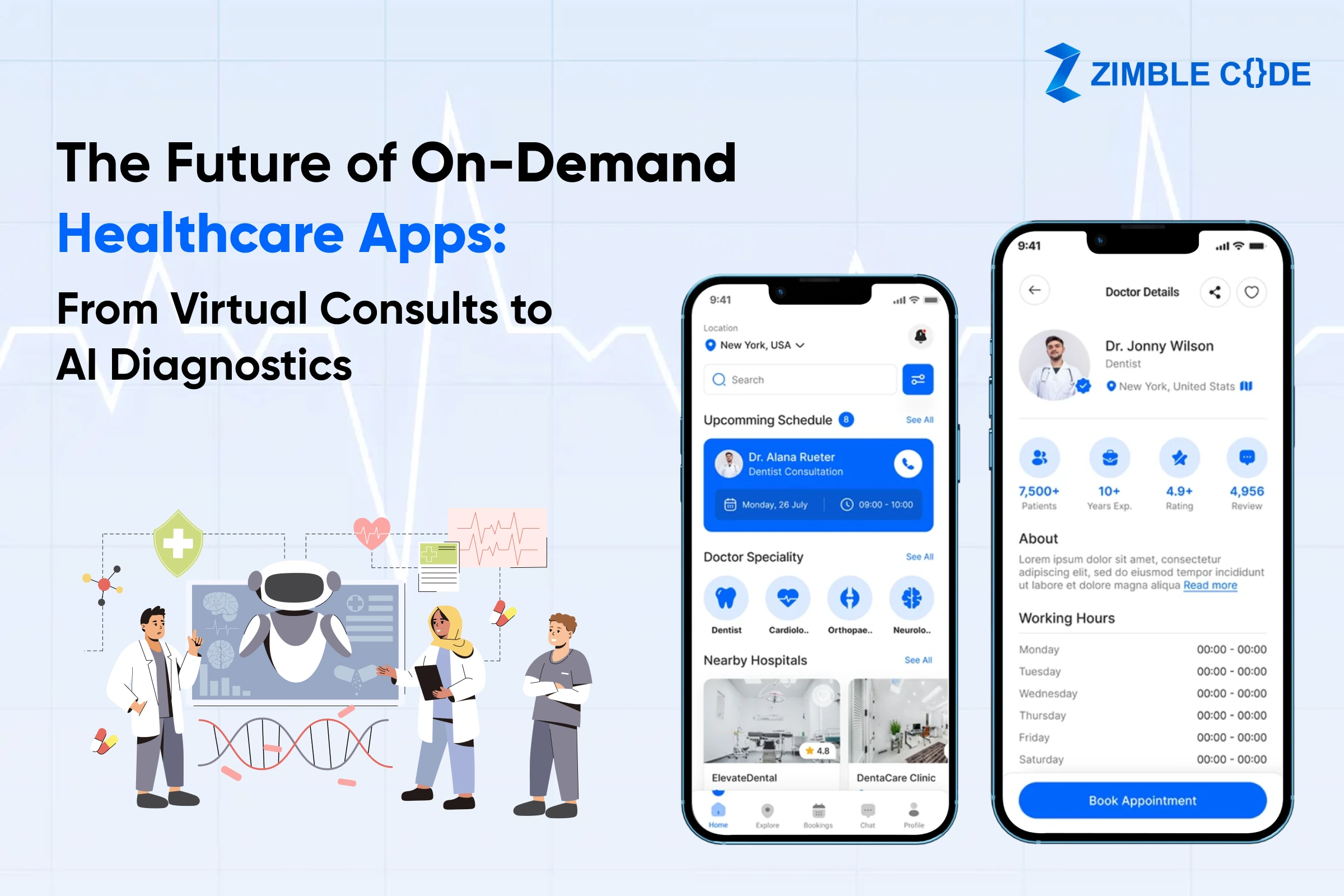




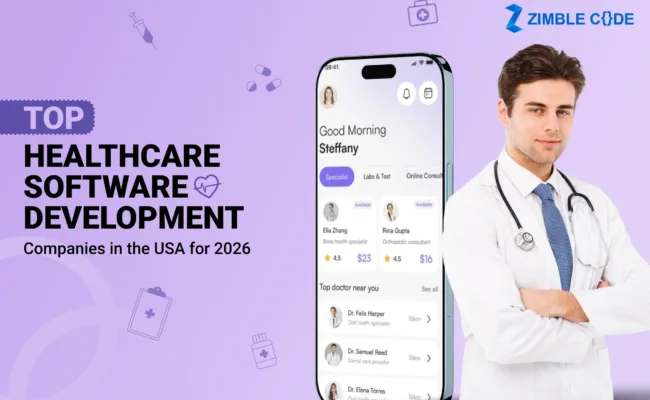
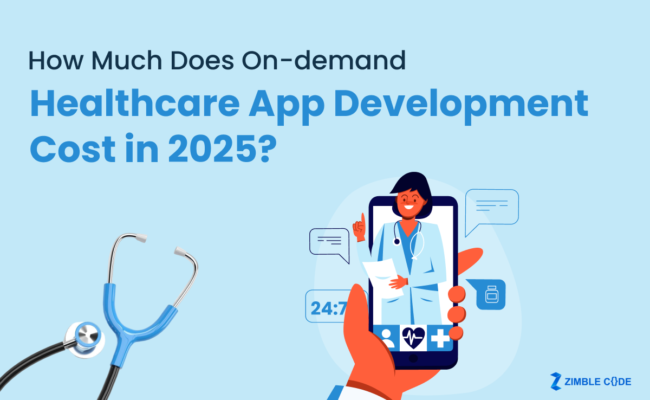
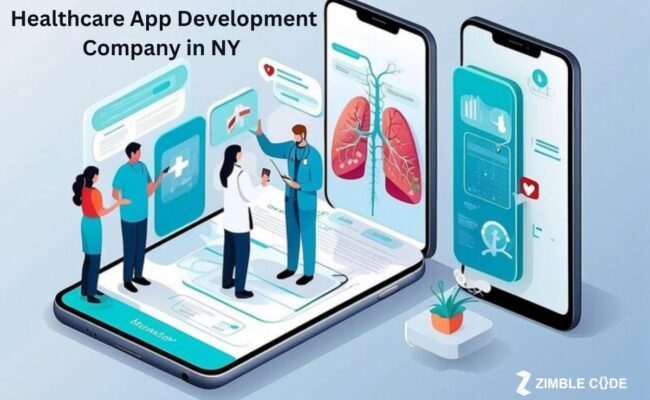
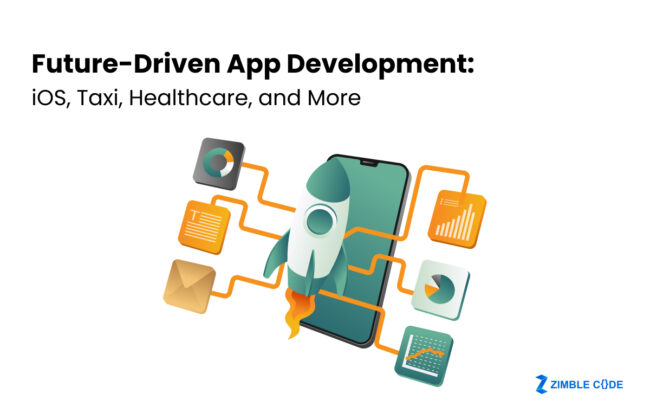
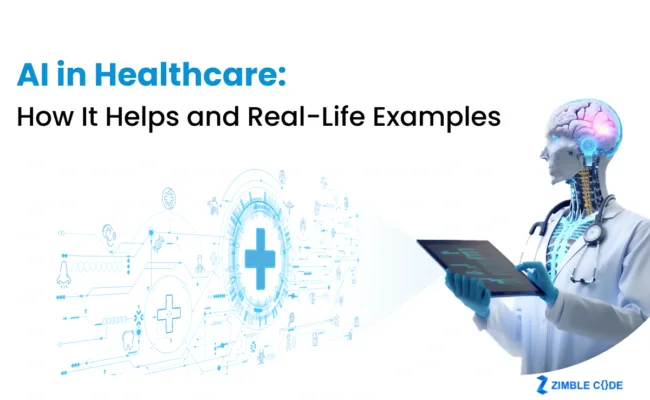

Leave A Comment